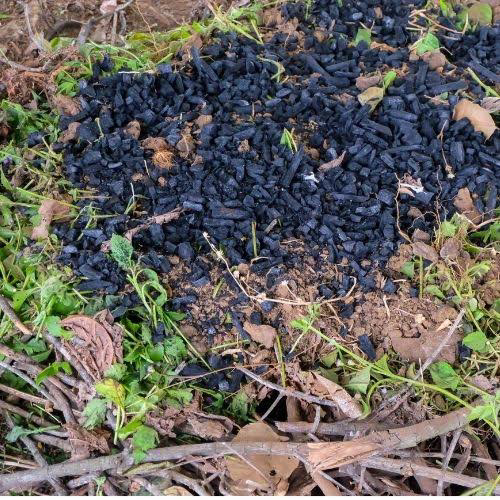SOIL HEALTH
Hey their is a huge attention in Kenya about Youth in policies and leadership meanwhile as a youth in agriculture and environment I argue the ministries involved to take a serious action ...
Today, I want to bring your attention to a critical issue that affects not only our food security but also the protection of our climate. It is the conservation and rehabilitation of soil.
Did you know that the amount of fertile soil being lost worldwide each year is equivalent to an area roughly one-third the size of Germany?
This alarming rate of soil degradation has severe consequences for our food supply and the health of our planet. It is particularly devastating for those living in arid regions of Asia, Africa, and Latin America who rely on farming to feed their families and communities.
But why is soil so important? Well, besides providing us with the food we eat, fertile soil is also crucial in carbon storage, playing a vital role in climate protection. In fact, it is second only to our oceans in its ability to store carbon. Therefore, we need to adopt ecological approaches to make use of soil in sustainable ways.
To address this issue, I want to introduce you to three effective actions that can help conserve and rehabilitate soil while promoting food security and climate protection: the use of microbial fertilizer, the use of biochar, and the use of protein hydrolysate.
Microbial fertilizer is a natural and sustainable alternative to chemical fertilizers.
It consists of beneficial bacteria and fungi that enhance nutrient uptake by plants, improving soil fertility and plant health. By using microbial fertilizer, we can reduce our reliance on synthetic fertilizers, minimizing their negative impacts on soil degradation and water pollution.
Another innovative approach is the use of biochar. Biochar is a type of charcoal produced from biomass that can be added to soil as a soil amendment. It has multiple benefits, including improving soil structure, retaining moisture, and enhancing nutrient availability. Additionally, biochar has the ability to sequester carbon, mitigating the impacts of climate change.
By incorporating biochar into our agricultural practices, we can increase soil fertility while reducing greenhouse gas emissions.
Protein hydrolysate is a valuable organic fertilizer derived from protein-rich sources such as fish or plant waste. It contains essential nutrients and amino acids that promote plant growth and soil health. By utilizing protein hydrolysate, we can improve soil fertility, reduce dependence on synthetic fertilizers, and minimize environmental pollution.
Conserving and rehabilitating soil is crucial for promoting food security and protecting our climate. By embracing innovative approaches such as the use of microbial fertilizer, biochar, and protein hydrolysate, we can ensure sustainable agriculture practices that nourish both our growing population and our planet. Let us all join hands in this endeavor to make soil conservation a priority in our agricultural and environmental efforts.
Conserving and rehabilitating soil to promote food security and climate protection(https://www.giz.de/en/worldwide/129677.html)







Comments
Post a Comment